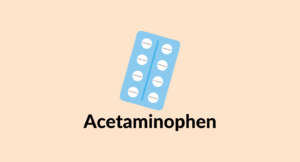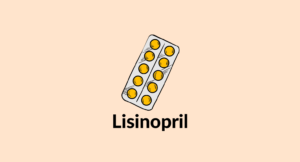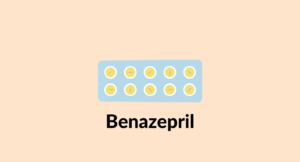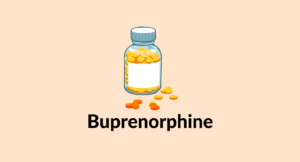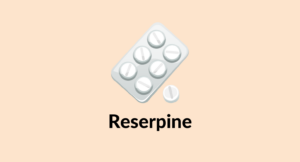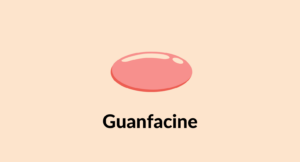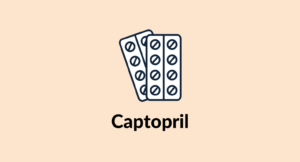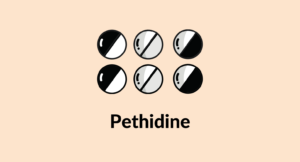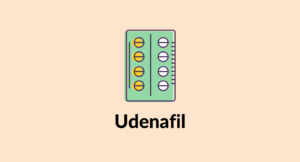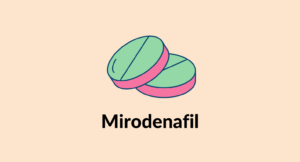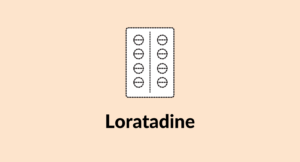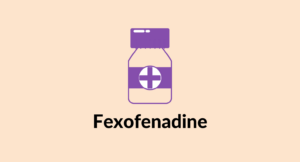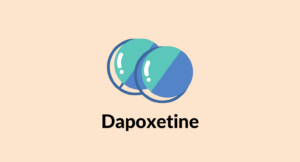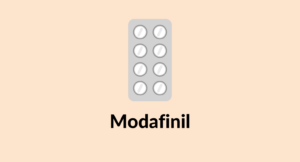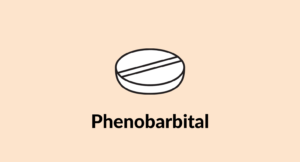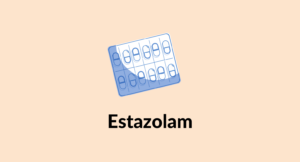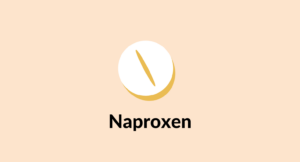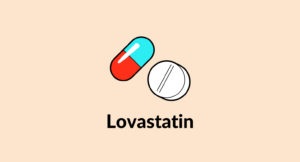Taking Cannabidiol With Other Medications: CBD-Drug Interaction Checker
We cover over 25 separate classes of drugs and the most common interactions to be aware of before using CBD.
Every year, more people are turning to CBD (cannabidiol) to support chronic health conditions like anxiety, chronic pain, epilepsy, insomnia, depression, and more.
Most of these conditions already have a variety of medications for treating them — so it’s common for people to use CBD while taking other medications.
Sometimes, this can be dangerous. Understand the risks and proceed with caution.

Which Medications Aren’t Safe to Take With CBD?
Most medications are unlikely to interact with CBD, but caution should still be advised.
With that said, there are a few classes of medications that pose a notable risk.
List of Medications to Avoid When Taking CBD:
- Barbiturates (Such as phenobarbital & butabarbital)
- Benzodiazepines (Such as alprazolam & temazepam)
- Blood Thinners (Such as heparin & warfarin)
- Immunosuppressants (Such as mTor inhibitors, cyclosporine, or prednisone)
Medications to Be Cautious of When Taking CBD:
- Blood pressure medications (Such as ACE inhibitors, alpha-blockers, beta-blockers, angiotensin II receptor blockers, & central agonists)
- Antihistamines (Such as diphenhydramine, loratadine, & promethazine)
- Heart medications (Such as beta-blockers, calcium channel blockers, & nitroglycerine)
- Antipsychotic medications (such as SDA medications, Risperidone, Haloperidol)
- Antidepressant medications (such as SSRIs, SNRIs, MAO inhibitors, & tricyclic antidepressants)
- Stimulants (such as Adderall & Vyvanse)
- Drugs with hypotensive side effects
- Drugs with sedative side effects
CBD Drug Interaction Chart
| Drug Class | May Increase Chance of Side Effects (Agonistic) | May Decrease Drugs Effect (Antagonistic) | Potential Metabolic Interaction | Severity of Interaction |
| ACE Inhibitors | ❌ | ❌ | ✅ | Moderate |
| Alcohol | ✅ | ❌ | ❌ | Mild |
| Alkylating Agents | ❌ | ✅ | ✅ | Caution! |
| Alpha-Blockers | ✅ | ❌ | ❌ | Moderate |
| Alpha-glucosidase Inhibitors | ❌ | ❌ | ❌ | Mild |
| Angiotensin II Receptor Blockers | ✅ | ❌ | ❌ | Mild |
| Anti-Emetics | ✅ | ❌ | ✅ | Moderate |
| Anti-Epileptics | ✅ | ❌ | ✅ | Moderate |
| Antibiotics | ❌ | ❌ | ✅ | Moderate |
| Antihistamines | ✅ | ❌ | ✅ | Moderate |
| Barbiturates | ✅ | ❌ | ✅ | Caution! |
| Antipsychotics | ❌ | ✅ | ✅ | Moderate |
| Benzodiazepines | ✅ | ❌ | ✅ | Caution! |
| Beta-Blockers | ✅ | ❌ | ✅ | Mild |
| Benzodiazepines | ✅ | ❌ | ✅ | Caution! |
| Blood Thinners | ❌ | ❌ | ✅ | Caution! |
| Biguanides | ✅ | ❌ | ✅ | Mild |
| Calcium Channel Blockers | ✅ | ❌ | ✅ | Moderate |
| Central Agonists | ✅ | ❌ | ✅ | Mild |
| Diuretics | ✅ | ❌ | ✅ | Mild |
| DPP-4 Inhibitors | ✅ | ❌ | ✅ | Mild |
| Eugeroics | ❌ | ✅ | ✅ | Mild |
| GLP-1 Receptor Agonists | ✅ | ❌ | ❌ | Mild |
| HIV antivirals | ❌ | ✅ | ✅ | Mild |
| HMG CoA reductase inhibitors | ❌ | ❌ | ✅ | Mild |
| Insulin | ✅ | ❌ | ❌ | Mild |
| Immunosuppressants | ❌ | ✅ | ❌ | Moderate |
| MAO Inhibitors | ❌ | ❌ | ✅ | Mild |
| Meglitinides | ❌ | ✅ | ✅ | Mild |
| NDRIs | ❌ | ✅ | ✅ | Mild |
| NSAIDs | ✅ | ❌ | ✅ | Mild |
| Opiate Painkiller | ✅ | ❌ | ✅ | Mild |
| PDE5 Inhibitors | ❌ | ❌ | ✅ | Mild |
| Peripheral Adrenergic Inhibitors | ✅ | ❌ | ✅ | Moderate |
| PPIs | ❌ | ❌ | ✅ | Mild |
| SARIs | ❌ | ❌ | ✅ | Mild |
| SGLT-2 Inhibitors | ✅ | ❌ | ❌ | Mild |
| SNRIs | ❌ | ❌ | ✅ | Moderate |
| SSRIs | ❌ | ❌ | ✅ | Moderate |
| Statins | ❌ | ❌ | ✅ | Mild |
| Sulfonylureas | ✅ | ❌ | ❌ | Mild |
| Stimulants | ❌ | ✅ | ✅ | Mild |
| Tricyclic Antidepressants | ❌ | ❌ | ✅ | Moderate |
| 5-ARIs | ❌ | ❌ | ✅ | Mild |
| 5HT3 receptor antagonists | ❌ | ❌ | ✅ | Moderate |
There Are Three Ways CBD Can Interact With Other Drugs
Medications will usually fall into one or more of the following categories:
- Increased effect — CBD makes the effects of the medication stronger.
- Decreased effect — CBD makes the effects of the medication weaker.
- Slowed metabolism — CBD interferes with the body’s ability to metabolize the medication efficiently.
Depending on the type of push CBD has on a given medication, it could cause side effects to occur more easily; or it could stop the drug from being able to do its job.
While most drugs don’t appear to have any significant adverse reaction with CBD, it’s best to err on the side of caution.
Side effects are always possible.
1. Increased Chance of Side Effects or Drug Potency (Agonistic Interaction ↑↑↑)
An agonistic interaction between two substances occurs when both substances have the same effect on the body. Together, both substances push on the same receptors or force a certain effect in the same direction.
A good example of this is CBD and blood pressure-lowering drugs. Both substances exert a force on the vascular system to reduce the pressure of the arteries. When both substances are used together, the force may be too strong — leading to low blood pressure that can cause side effects like dizziness or fainting.
2. Decreased Drug Effect (Antagonistic Interaction ↓↓↓)
An antagonistic interaction is the opposite of an agonistic interaction. This happens when two substances have opposite effects from each other. One might put a positive force on a bodily function, while the other negates this effect by pushing in the opposite direction.
Most of the negative effects of this interaction result from the absence of effects. You may be using a medication to treat something, but the effects of CBD negate these effects and make the medicine less effective. The symptoms you experience as a result come from the medication no longer working and your symptoms coming back.
An example of this is the interaction between CBD and stimulants.
CBD is a relaxant, causing neurological activity to decrease, which works in direct opposition to stimulants, which increase neurological activity. If you’re using stimulants to treat attention deficit disorders, CBD can negate this effect — causing you to feel the effects of your disorder more strongly.
3. Slowed Metabolism (Metabolic Competition)
This is the most common interaction CBD has with other medications.
Virtually every substance you take is eventually metabolized by the liver. Compounds are absorbed into the bloodstream, where they float around the body to exert their effects. Eventually, they’re filtered through the liver. A specialized set of enzymes is tasked with disassembling the compound into a smaller form.
The resulting metabolites are then filtered out of the body by the kidneys.
There are dozens of enzymes in the liver, each one designed to disassemble a specific type of molecule. Most drugs require several of these enzymes to be broken down completely — including CBD.
If two or more compounds require the same enzymes to break down, they can end up competing for each other. This can slow the rate of metabolism for each compound — leading to a longer duration of effects and a buildup of each compound in the body.
Picture it like this. When you go to the food court at your local mall, there are many different places to order food. But you may have a preference for a certain type of food. If many other people in the mall prefer the same food, there will be a lineup for that stall, even if all the other nearby restaurants have no lines.
CBD is metabolized by the following liver enzymes:
Other Minor CYP450 Pathways for CBD:
- CYP1A1
- CYP1A2
- CYP1A22
- CYP1B1
CBD Has A Relatively Low IC50 Value For CYP450 Enzymes
The IC50 value is used to measure the amount of a certain compound needed to inhibit 50% of its target CYP450 enzymes.
The main enzyme group responsible for metabolizing CBD is CYP2D6 and CYP3A4. The IC50 value of CBD for inhibiting 2D6 was 6.52 μM [12], and the IC50 for the 3A4 enzymes is 11.7 μM [10]. The smaller the number, the stronger the inhibitory action. For example, a strong CYP3A4 inhibitor, ketoconazole, has an IC50 value of 0.047 [11]— which is several orders of magnitude stronger than CBD.
What this means is that CBD is unlikely to interact with other medications that require the same metabolic pathways unless either a very high dose of both substances are used, or the other medication has a very strong inhibitory effect (IC50 value less than 1 µM).
Interpreting IC50 Values:
- Potent Inhibition = IC50 less than 1 µM
- Moderate inhibition = IC50 between 1 and 10 µM
- Weak inhibition = IC50 greater than 10 µM
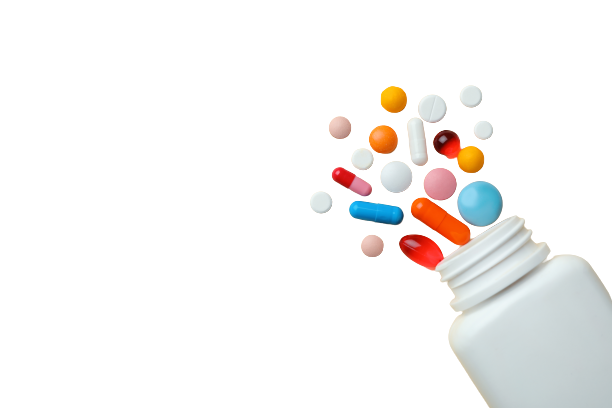
CBD & Blood Pressure Medications
CBD is unlikely to have any major negative interactions with this class of medication in general, but there’s always a chance of interaction due to the similarities in their effects. CBD has blood-pressure-reducing effects on its own, which could cause blood pressure to decrease even further when used in combination with prescription antihypertensives.
We only want blood pressure to drop until it’s within the healthy range (120/80). If it drops too low, there may not be enough pressure to pump blood against gravity into the brain. When we’re unable to push blood efficiently into the brain, we may become dizzy or lightheaded. In severe cases, it can cause us to faint.
ACE Inhibitors & CBD
- Type of Interaction: ↑↑↑ Increased Effect (Agonistic)
- Severity: Moderate
ACE stands for angiotensin-converting enzyme. It’s responsible for converting angiotensin I into angiotensin II — a powerful vasoconstrictor (tightens the arteries and increases blood pressure).
ACE inhibitors block this enzyme to prevent the tightening of the arteries. They’re used to combat high blood pressure.
CBD is unlikely to directly interact with ACE inhibitors but may increase its effects. In some cases, blood pressure may drop too low — causing side effects such as dizziness or fainting.
ACE Inhibitors That May Interact With CBD
- Benazepril hydrochloride (Lotensin)
- Captopril (Capoten)
- Enalapril maleate (Vasotec)
- Fosinopril sodium (Monopril)
- Lisinopril (Prinivel & Zestril)
- Moexipril (Univasc)
- Perindopril (Aceon)
- Quinapril Hydrochloride (Accupril)
- Ramipril (Altace)
- Trandolapril (Mavik)
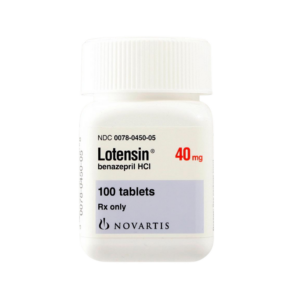
Alpha-Blockers & CBD
- Type of Interaction: ↑↑↑ Increased Effect (Agonistic)
- Severity: Moderate
The alpha-adrenergic receptors are located throughout the arterial system. When these receptors become active, the smooth muscles in the arteries contract — narrowing the arteries to increase blood pressure. This is one of the main responses of the body when we’re stressed.
Alpha-blockers inhibit the adrenergic receptors in the arteries and prevent high blood pressure caused by these receptors.
CBD may further decrease blood pressure and lead to hypotension — especially in the evenings or while the user is feeling particularly relaxed. Interactions are rare, but it may be necessary to reduce the dose of CBD while using alpha-blocker medications.
Alpha-Blockers That May Interact With CBD
- Carvedilol (Coreg)
- Doxazosin Mesylate (Cardura)
- Prazosin Hydrochloride (Minipress)
- Terazosin Hydrochloride (Hytrin)
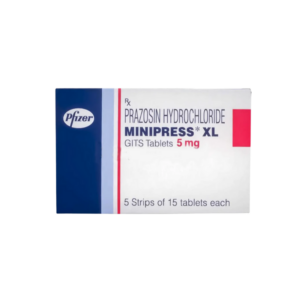
Angiotensin II Receptor Blockers & CBD
- Type of Interaction: ↑↑↑ Increased Effect (Agonistic)
- Severity: Mild
Angiotensin II is created with the help of an enzyme called ACE. In most cases, ACE inhibitor drugs are used first, but if these don’t work, an angiotensin II receptor blocker can be used instead. The results are much the same — the drugs block the vasoconstrictive effects of angiotensin II to lower blood pressure.
CBD may interact with these drugs by boosting their effects. CBD is a known antihypertensive agent, which could cause pressure to dip too low and cause side-effects mimicking hypotension.
Angiotensin II Receptor Blockers That May Interact With CBD
- Candesartan (Atacand)
- Eprosartan Mesylate (Teveten)
- Irbesartan (Avapro)
- Losartan Potassium (Cozaar)
- Telmisartan (Micardis)
- Valsartan (Diovan)
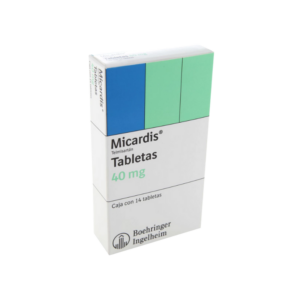
Beta-Blockers & CBD
- Type of Interaction: ↑↑↑ Increased Effect (Agonistic)
- Severity: Moderate
Beta-blockers target the heart directly. They reduce the heart rate and the strength of each contraction. This puts less pressure on the arteries to reduce blood pressure overall.
CBD isn’t likely to interact with beta-blockers directly but may compete for metabolism in the liver and could cause blood pressure to dip too low due to the similarities in effects.
Beta-Blockers That May Interact With CBD
- Acebutolol (Sectral)
- Atenolol (Tenormin)
- Betaxolol (Kerlone)
- Bisoprolol Fumarate (Zebeta)
- Carteolol Hydrochloride (Cartrol)
- Metoprolol Tartrate (Lopressor)
- Metoprolol Succinate (Toprol-XL)
- Nadolol (Corgard)
- Penbutolol Sulfate (Levatol)
- Pindolol (Visken)
- Propranolol Hydrochloride (Inderal, InnoPran & Pronol)
- Sotalol Hydrochloride (Betapace)
- Timolol Maleate (Blocadren)
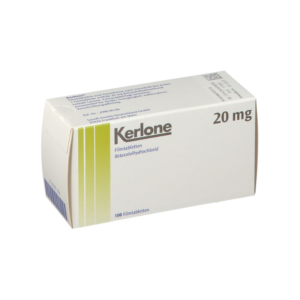
Calcium Channel Blockers & CBD
- Type of Interaction: ↑↑↑ Increased Effect (Agonistic)
- Severity: Moderate
Calcium channel blockers work by reducing the amount of calcium that enters the heart’s muscle cells. Calcium is required for the muscles to contract, so by reducing the concentrations of calcium in the heart cells; these medications can reduce the contractile force of the heart muscle.
Reducing the contractile power of the heart reduces systolic blood pressure in a similar way to beta-blocker medications.
CBD may slow the metabolism of calcium channel blockers, and could theoretically cause blood pressure to dip too low. With that said, it’s not common for people taking calcium channel blockers to experience negative interactions with CBD.
Calcium Channel Blockers That May Interact With CBD
- Amlodipine Besylate (Norvasc, Lotrel)
- Bepridil (Vasocor)
- Diltiazem Hydrochloride (Cardizem CD, Cardizem SR, Dilacor XR, Tiazac)
- Felodipine (Plendil)
- Isradipine (DynaCirc, DynaCirc CR)
- Nicardipine (Cardene SR)
- Nifedipine (Adalat CC, Procardia XL)
- Nisoldipine (Solar)
- Verapamil Hydrochloride (Calan SR, Covera HS, Isoptin SR, Verelan)
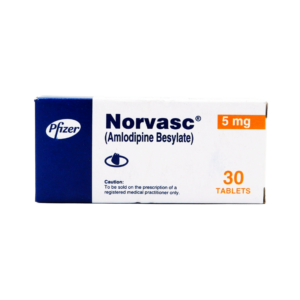
Central Agonists & CBD
- Type of Interaction: ↑↑↑ Increased Effect (Agonistic)
- Severity: Mild
Central agonists do the same job as an alpha-blocker — preventing or reducing the contractility of the arteries to reduce blood pressure. They use a completely different mechanism and are usually prescribed if alpha-blockers don’t work.
CBD may interact with these medications because of the similarities in effects. However, the side effects of using these two medication classes are uncommon.
Central Agonists That May Interact With CBD
- Alpha Methyldopa (Aldomet)
- Clonidine Hydrochloride (Catapres)
- Guanabenz Acetate (Wytensin)
- Guanfacine Hydrochloride (Tenex)
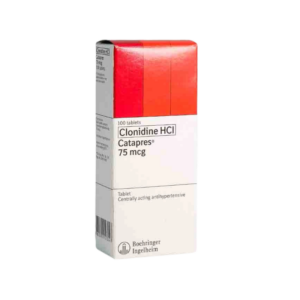
Diuretics & CBD
- Type of Interaction: ↑↑↑ Increased Effect (Agonistic)
- Severity: Mild
Diuretics are a class of medications used to reduce blood pressure by promoting the loss of electrolytes and fluid from the vascular system. If the volume of fluid in the blood is decreased, blood pressure drops along with it.
CBD is unlikely to interact with these medications directly. However, CBD and diuretics produce the same results — lowered blood pressure. This means taking the two together could cause blood pressure to dip too low — resulting in dizziness and fainting.
Diuretics That May Interact With CBD
- Chlorthalidone (Hygroton)
- Chlorothiazide (Diuril)
- Hydrochlorothiazide (Esidrix, Hydrodiuril & Microzide)
- Indapamide (Lozol)
- Metolazone (Mykrox & Zaroxolyn)
- Amiloride Hydrochloride (Midamar)
- Spironolactone (Aldactone)
- Triamterene (Dyrenium)
- Furosemide (Lasix)
- Bumetanide (Bumex)
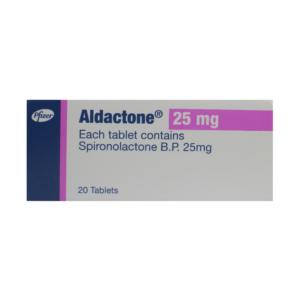
Peripheral Adrenergic Inhibitors & CBD
- Type of Interaction: ↑↑↑ Increased Effect (Agonistic)
- Severity: Moderate
These medications were some of the first blood pressure drugs ever invented. Reserpine has been around since the 1950s.
These drugs have a lot of negative side effects and are only used as a last resort these days (when other antihypertensives won’t work).
CBD may interact with these drugs by causing blood pressure to drop too low. It can also interfere with the metabolism of these drugs, which increases the chances of experiencing side effects. Negative interactions of peripheral adrenergic inhibitors and CBD is more common than many other blood pressure medications and should either be avoided or used with caution.
Peripheral Adrenergic Inhibitors That May Interact With CBD
- Guanadrel (Hylorel)
- Guanethidine Monosulfate (Ismelin)
- Reserpine (Serpasil)

CBD & Bloodthinners
- Type of Interaction: Metabolic Competitor
- Severity: High
Blood thinners are a class of medications used to treat heart disease and stroke patients. They work by blocking clotting factors or fibrinogen to prevent or dismantle blood clots that could become lodged in the arteries and cause a heart attack or stroke.
CBD doesn’t directly interact with blood thinners, nor does it produce similar effects. However, certain blood thinners, such as Warfarin (the most commonly prescribed blood thinner), have been reported to have negative interactions with CBD [3].
Warfarin is particularly difficult to metabolize by the body and requires the combined effort of many different CYP450 enzymes in the liver — primarily CYP3A4 and CYP2C19. Others include CYP1A1, CYP1A22, CYP2C19, CYP2D6, and CYP3A5.
CBD has been shown to compete for metabolism with all seven of these enzyme pathways [4] and could lead to a sluggish metabolism of Warfarin. Over several days or weeks, Warfarin concentrations may increase in the bloodstream, leading to much higher chances of side effects of negative effects caused by the drug itself. These side effects can be life-threatening.
As a result, CBD should not be taken alongside blood thinners of any kind unless under the advice of your prescribing doctor.
Blood Thinner Medications That May Interact With CBD
- Apixaban (Eliquis)
- Dabigatran (Pradaxa)
- Enoxaparin (Lovenox)
- Heparins
- Rivaroxaban (Xarelto)
- Warfarin (Coumadin & Jantoven)
- Clopidogrel (Plavix)
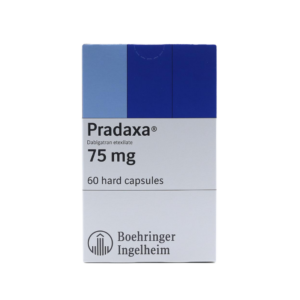
CBD & Painkillers
CBD is a powerful painkiller in its own right, but it works through completely separate mechanisms than most other painkillers. This means it’s not as likely to interact with common painkillers directly. With that said, there are a few ways CBD can interfere with different types of pain medications.
The most common is through competitive liver metabolism. CBD will interfere with the liver’s ability to metabolize pain medications, which could increase the chances of side effects from the medication — especially for drugs that are used regularly.
CBD also shares a similar set of side effects to these medications — such as sedation, dehydration, loss of appetite, diarrhea, and low blood pressure.
You should only take CBD alongside over-the-counter or prescription painkillers after consulting with a medical professional. It’s also likely the dose of CBD will need to be reduced when combined with painkillers.
Opiate Painkillers & CBD
- Type of Interaction: Metabolic Competitor
- Severity: Mild
Opiate painkillers are very common. There are many different kinds of opiate drugs prescribed to manage the pain of all different origins. They work by activating the opioid pain receptors located in the spinal cord and brain. These receptors act as a gateway for pain signals traveling from the body to the brain. When they become activated, either by opioid drugs or the naturally-occurring opioids in our body (called endorphins), the gates close and reduce the pain signal before it reaches the brain.
Opioids are extremely effective painkillers, but they have a dark side. The opiate system is also intimately connected to our dopamine reward system. Activating opioid receptors causes feelings of euphoria and pleasure, which we can easily become addicted to.
CBD is often used as an alternative to opiate medications to prevent addiction — especially for long-term pain that will require regular treatment over the course of weeks, months, or years. Taking opiates for long periods of time dramatically increases the chances of becoming addicted.
Most opiates won’t interact strongly with CBD, but there is a potential for a negative interaction. CBD may increase the side-effects of opiates by competing with metabolism in the liver and could, therefore, increase the chances of overdose.
You should always speak with your doctor before taking CBD if you’re using opiate pain medications. Your doctor can advise you on a modified dose of both substances to reduce your risk of side effects.
Opiate Analgesics That May Interact With CBD
- Buprenorphine (Cizdol & Brixadi)
- Codeine
- Pethidine (Meperidine & Demerol)
- Fentanyl (Abstral & Actiq)
- Hydrocodone (Hysingla ER, Zohydro ER & Hycodan)
- Hydromorphone (Dilaudid)
- Methadone (Methadose & Dolophine)
- Morphine (Kadian & Roxanol)
- Oxycodone (Percodan, Endodan, Roxiprin, Percocet, Endocet, Roxicet & OxyContin)
- Tramadol (Ultram, Ryzolt & ConZip)
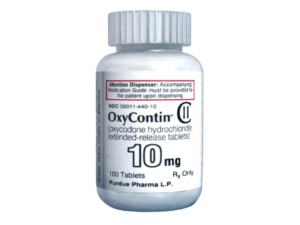
NSAID Painkillers & CBD
- Type of Interaction: ↑↑↑ Increased Effect (Agonistic)
- Severity: Mild
NSAID stands for “non-steroidal anti-inflammatory drug.” They’re the most common over-the-counter pain medications. Some of the most well-known examples are Advil, Aleve, and Aspirin.
These medications work by blocking the COX-1 or COX-2 enzymes, which are responsible for creating pro-inflammatory molecules. Blocking this enzyme halts the inflammation driving various forms of pain — such as injuries, headaches, or stomach pain.
Several studies have shown that CBD and NSAIDs work synergistically together [1, 2] — which means they enhance each other’s benefits for reducing both pain and inflammation.
Many people use NSAID medications and CBD together, but caution should be advised. Because of the synergy between these two substances, it’s important to use a smaller dose to avoid side effects.
NSAID medications and CBD are metabolized through some of the same liver enzymes. Competition for liver enzymes causes both compounds to remain unmetabolized in the bloodstream for longer periods of time. This is only likely to cause issues if you’re using repetitive doses. Since NSAIDs are usually only used periodically or for a short period of time, it’s unlikely these drugs will increase toxic levels in the blood. Daily Aspirin is the exception here, but the dose is much lower and unlikely to cause problems.
If you’re using NSAIDS on a daily basis, you should consult with your doctor before taking CBD. If NSAID concentrations become too high, it can lead to severe liver damage.
NSAIDs That May Interact With CBD
- Aspirin (Ascriptin, Aspergum, Aspirtab, Bayer, Easprin, Ecotrin, Ecpirin, Entercote)
- Ibuprofen (Motrin, Advil, Nuprin, Caldolor & Neoprofen)
- Celecoxib (Celebrex & Onsenal)
- Naproxen (Aleve)
- Ketorolac (Toradol)
- Etodolac (Ultradol)
- Meloxicam (Mobic)
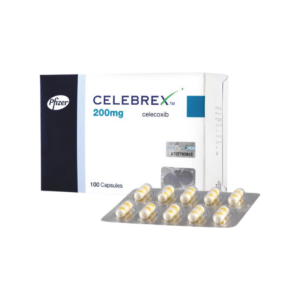
CBD & Anti-Anxiety Medications
One of the most well-known benefits of CBD is the ability to manage anxiety symptoms. It works by regulating the endocannabinoid system and a neurotransmitter known as GABA.
Prescription drugs used for managing anxiety also work through GABA — which can be considered the “brake pedal for the neurological system.” It’s responsible for slowing neurological activity down when it becomes too hyperactive (as is the case with anxiety).
Because CBD and anxiety medications share a similar mechanism of action, there’s a particularly high chance of the two interacting. It’s common for people to mix the two in order to allow for lower doses of prescription drugs to prevent the formation of dependency and addiction.
These substances should only be combined after consulting a medical professional. The dose of anxiety medications may need to be reduced to avoid the risk of side effects.
Benzodiazepines & CBD
- Type of Interaction: ↑↑↑ Increased Effect (Agonistic)
- Severity: High
Benzodiazepines are the most commonly prescribed class of drugs for managing anxiety. They work by increasing the binding ability of GABA to inhibit electrical activity in the brain. They’re highly effective for preventing or reversing anxiety attacks, as well as promoting sleep for people suffering from insomnia or reducing the frequency and severity of seizures.
Unfortunately, these drugs are also highly addictive. Some drugs, such as Xanax, can lead to dependency and addiction in as little as two weeks.
CBD is very likely to interact with benzodiazepines. The interaction increases the effects of both substances, which can make them too strong. People who take benzos and CBD report feeling more sedated than usual.
Some people are using CBD to help wean off benzodiazepines by gradually increasing the dose of CBD and decreasing the dose of benzos over time.
Always consult a doctor before combining these drugs together for any reason.
Benzodiazepines That May Interact With CBD
- Alprazolam (Xanax)
- Chlordiazepoxide (Librium)
- Clonazepam (Klonopin)
- Clorazepate (Tranxene)
- Diazepam (Valium)
- Estazolam (Prosom)
- Flurazepam (Dalmane)
- Lorazepam (Ativan)
- Midazolam (Versed)
- Oxazepam (Serax)
- Temazepam (Restoril)
- Triazolam (Halcion)
- Quazepam (Doral)
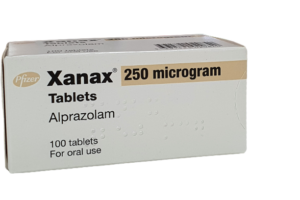
Barbiturates & CBD
- Type of Interaction: ↑↑↑ Increased Effect (Agonistic)
- Severity: High
Barbiturates are an older class of anxiety, insomnia, and anticonvulsant medications. They’ve largely been replaced by benzodiazepines, which are both more effective and less dangerous.
This class of drugs has a similar effect on the body as both CBD and benzodiazepines. It’s not a good idea to combine CBD with barbiturates for any reason. The combination is very likely to lead to severe side effects.
Barbiturates That May Interact With CBD
- Amobarbital (Amytal Sodium)
- Butabarbital (Butisol Sodium)
- Mephobarbital (Mebaral)
- Pentobarbital (Nembutal Sodium)
- Phenobarbital (Luminal)
- Secobarbital (Seconal)

CBD & Antidepressants
CBD is an excellent antidepressant — but only with long-term use. The benefits of CBD on depression take a long time to manifest. CBD supports hormone and neurochemical balance and alleviates inflammation in the brain that could be contributing to depressive symptoms.
Most prescription antidepressants work through completely separate mechanisms and are unlikely to directly interact with CBD. Instead, most of the dangers associated with combining these substances come from competition for liver metabolism.
Antidepressants are used on a daily basis, so any changes in the rate of metabolism of these drugs could lead to gradually increasing concentrations in the blood. If left unchecked, drug concentrations can reach toxic levels — leading to severe side-effects such as serotonin syndrome.
CBD should only be used alongside antidepressants after consulting with your doctor.
SSRI Medications & CBD
- Type of Interaction: Metabolic Competitor
- Severity: Moderate
SSRIs stand for selective serotonin reuptake inhibitors — they’re the most common class of antidepressant drugs used today.
Serotonin is one of the key regulators of mood, so these drugs are used to increase the concentrations of serotonin at the synapses in order to boost mood. Whenever serotonin is released, it’s reabsorbed into the synapses where it’s dismantled. SSRIs work by blocking the reabsorption of serotonin — allowing it to remain in the synapses for longer periods of time.
Generally speaking, you can take CBD alongside antidepressants, but with caution. Most of the dangers of this combination come with long-term mixing. CBD can slow SSRI metabolism and cause them to build up in the bloodstream. If the dose becomes too high, it can cause something called serotonin syndrome — which is what happens when serotonin levels are too high.
The side effects of this condition can be severe and should be avoided at all costs.
If you’re going to mix CBD with SSRIs, make sure to stick to lower doses, take breaks every couple of days, and consult your doctor if you experience any side effects whatsoever.
SSRIs That May Interact With CBD
- Citalopram (Cipramil & Celexa)
- Dapoxetine (Priligy)
- Escitalopram (Cipralex & Lexapro)
- Fluoxetine (Prozac, Rapiflux, Sarafem, Selfemra & Oxactin)
- Fluvoxamine (Faverin)
- Paroxetine (Seroxat)
- Sertraline (Zoloft, Lustral)
- Vortioxetine (Brintellix)
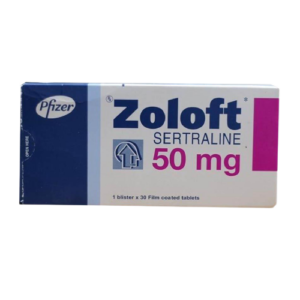
SNRI Medications & CBD
- Type of Interaction: Metabolic Competitor
- Severity: Mild to Moderate
SNRI stands for serotonin-norepinephrine reuptake inhibitors. They’re a secondary option for treating depression when SSRIs haven’t worked. SNRIs are also a good option for people who have both depression and anxiety.
These medications work through the same mechanism as SSRIs but with one distinct difference. These drugs increase the concentrations of both serotonin and the related neurotransmitter norepinephrine.
CBD may interact with SNRI medications in two main ways — it competes for the metabolism of the drug in the liver (primarily at the CYP3A4 enzyme) and may negate some of the benefits of SNRIs (theoretical).
SNRIs follow a very specific dosage schedule, just like SSRIs. The dose is carefully administered to achieve consistent levels of the drug in the body. The dose is calculated based on weight and titrated to provide consistent levels for the patient’s individual metabolism.
When CBD is thrown into the mix, it can alter the rate of metabolism of the drugs. Over time, the concentration of the drugs may increase, eventually leading to signs of drug toxicity or overdose.
SNRIs That May Interact With CBD
- Atomoxetine (Strattera)
- Desvenlafaxine (Pristiq, Khedezla)
- Duloxetine (Cymbalta, Irenka)
- Levomilnacipran (Fetzima)
- Milnacipran (Savella)
- Venlafaxine (Effexor XR)

Tricyclic Antidepressants & CBD
- Type of Interaction: Metabolic Competitor
- Severity: Moderate
Tricyclic antidepressants are an older class of depression medications. They’re still used today, but only when other treatments fail to produce results. They block the reuptake of serotonin and norepinephrine but also interact with other neurotransmitters.
They’re considered a “dirty drug” because they interact with receptors we don’t always want to target. This gives them a lot of extra side effects, other drugs like SSRIs or SNRIs don’t have.
CBD and tricyclics can be combined, but always consult a medical professional first. There’s a higher chance of causing severe side effects with higher doses of CBD compared to other antidepressant medications.
Tricyclic Antidepressants That May Interact With CBD
- Amitriptyline (Elavil)
- Amoxapine (Asendin)
- Desipramine (Norpramin)
- Doxepin (Sinequan, Quitaxon & Aponal)
- Imipramine (Tofranil)
- Nortriptyline (Pamelor)
- Protriptyline (Vivactil)
- Trimipramine (Surmontil)
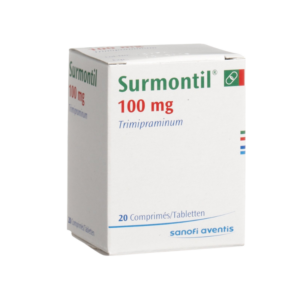
MAO Inhibitors & CBD
- Type of Interaction: Metabolic Competitor
- Severity: Mild
MAO stands for monoamine oxidase — which is the primary enzyme responsible for breaking down the monoamine class of neurotransmitters. This includes serotonin, dopamine, and norepinephrine — all of which are involved in the regulation of mood.
MAO inhibitors are used to increase the concentration of neurotransmitters in the brain to boost mood.
This class of antidepressants isn’t as popular as SSRIs or SNRIs. They’re thought to be less effective and result in side effects more often than these other classes of drugs. Some people find this class of drug is more effective for regulating mood than the other antidepressants. Everybody is different, so it’s common for a doctor to try a few medications to see what works when treating a new patient with depression.
CBD does not directly interact with MAO but may compete for metabolism in the liver. Many MAO inhibitors are metabolized by the CYP2D6, CYP1A2, and CYP2C19 enzymes — all of which are affected by CBD as well.
Like all antidepressants, MAO inhibitors are used consistently on a daily basis. If metabolism is slowed enough for these medications to build up in the bloodstream, it could result in side effects or toxicity. It’s wise to take lower doses of CBD and periodic breaks if combining these two substances together.
You should also consult your doctor before taking any other substances if you’ve been prescribed MAO inhibitors.
MAO Inhibitors That May Interact With CBD
- Isocarboxazid (Marplan)
- Phenelzine (Nardil)
- Selegiline (Emsam)
- Tranylcypromine (Parnate)
SARI Medications & CBD
- Type of Interaction: Metabolic Competitor (CYP3A4)
- Severity: Mild
SARI stands for Serotonin antagonist and reuptake inhibitors. They’re a type of antidepressant, anxiolytic, and anti-insomnia medication. They’re rarely used as the first line of defense for depression but are commonly prescribed for patients with depression, anxiety, and insomnia together.
These medications block the 5-HT2A serotonin receptor and block serotonin transporters — leading to increased activity of serotonin in the brain.
These medications are heavily reliant on the CYP3A4 enzymes in the liver. When taken with CBD, the worry is that concentrations of this medication can increase, leading to a higher risk of side effects from the medication and higher chances of dependency forming on the drug.
The most common side effects of SARI medications include headaches, nausea, digestive issues, confusion, agitation, and sedation.
SARI Medications That May Interact With CBD
- Trazodone (Desyrel & Oleptro)
- Nefazodone (Serzone)
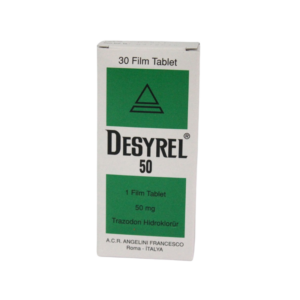
SDA Medications & CBD
- Type of Interaction: ↑↑↑ Increased Effect (Agonistic)
- Severity: Moderate
SDA stands for serotonin, dopamine antagonists. SDAs are used for treating schizophrenia, bipolar disorder, autism, and major depressive disorder.
These medications have a strong sedating effect, which makes them better for use in the evenings before bed. They work by blocking both dopamine and serotonin receptors in the brain.
There are a lot of side effects associated with these medications, many of which may be compounded when taken with CBD. Some examples include dry mouth, low blood pressure, and memory. It isn’t considered safe to mix CBD and SDA medications without consulting with your prescribing physician first. Patients that are above the age of 65 or have been diagnosed with dementia are the most at-risk.
SDA Medications That May Interact With CBD
- Aripiprazole (Abilify)
- Brexpiprazole (Rexulti)
- Olanzapine (Zyprexa)
- Quetiapine (Seroquel)
- Ziprasidone (Geodon)
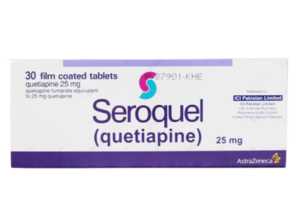
NDRI Medications & CBD
- Type of Interaction: ↓↓↓ Decreased Effect (Antagonistic)
- Severity: Mild
NDRI stands for Noradrenalin-Dopamine Reuptake Inhibitors. They’re used to treat depression as well as a variety of other health conditions — including ADHD, narcolepsy, and Parkinson’s disease.
They work by increasing the concentration of dopamine and noradrenaline in the brain by blocking the reuptake channels that lead to their destruction.
CBD is unlikely to have any significant interactions with these medications — but may cause concentrations of NDRIs to increase if used on a consistent basis. CBD may interfere with the metabolism of these drugs, which require CYP2B6 enzymes. CBD does compete for these enzymes, but not as strong as it does for other enzymes.
Many of the effects of NDRI medications are stimulating in nature. CBD has more of an inhibitory effect on the brain, which could negate many of the benefits of the medications and reduce their effectiveness. Some suggest this effect is beneficial for alleviating some of the common side-effects of these medications. More research is needed to fully understand whether or not it’s safe to mix CBD with NDRI medications.
If using any psychiatric medication, you should speak with your doctor before you try CBD.
NDRI Medications That May Interact With CBD
- Bupropion (Budeprion, Buproban, Wellbutrin & Zyban)
- Amineptine (Survector, Maneon, Directim)
- Desoxypipradrol (2-DPMP)
- Dexmethylphenidate (Focalin)
- Difemetorex (Cleofil)
- Diphenylprolinol (D2PM)
- Ethylphenidate
- Fencamfamine (Glucoenergan, Reactivan)
- Fencamine (Altimina, Sicoclor)
- Lefetamine (Santenol)
- Methylenedioxypyrovalerone (MDPV)
- Methylphenidate (Ritalin, Concerta, Metadate, Methylin, Rubifen, Stimdate)
- Nomifensine (Merital)
- O-2172
- Phenylpiracetam (Phenotropil, Carphedon)
- Pipradrol (Meretran)
- Prolintane (Promotil, Katovit)
- Pyrovalerone (Centroton, Thymergix)
- Solriamfetol (Sunosi)
- Tametraline (CP-24,411)
- WY-46824
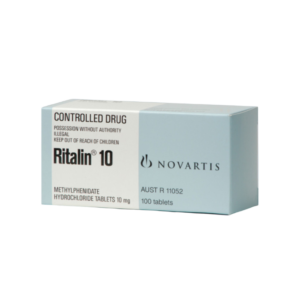
CBD & Stimulants/Eugeroics
- Type of Interaction: ↓↓↓ Decreased Effect (Antagonistic)
- Severity: Mild
Stimulant drugs are used for managing conditions like ADHD, narcolepsy, or chronic fatigue syndrome. They’re often used off-label to boost focus and concentration at work or university. They work by increasing the secretion of neurotransmitters such as dopamine and norepinephrine.
Many people take CBD with stimulant medications as a way to negate some of the side effects of these drugs — which often include muscle tension and anxiety.
Caution is always advised when mixing substances that have conflicting effects like this — one pushes the nervous system into overdrive (stimulants), the other suppresses nervous system activity (CBD).
Serious interactions are unlikely when combining stimulants and CBD, but it’s wise to be cautious with the dose of both. Consult with your doctor first, and start with only a very small dose of CBD. You can increase the dose gradually by adding 2 mg of CBD to each of your daily doses until you find the right balance for your body.
It’s possible for CBD to reduce the effectiveness of stimulant medications, which could prevent the medications from doing their job.
Some of the other cannabinoids in cannabis plants may also interfere with stimulants — primarily THC (tetrahydrocannabinol).
Stimulants and THC are a bad combination and often result in side effects. Always make sure the cannabis products you’re using contain little to no THC or related cannabinoids such as CBN or THCV.
Stimulant & Eugeroic Drugs That May Interact With CBD
- Amphetamine (Adzenys ER, Adderall, Mydayis)
- Lisdexamfetamine Dimesylate (Vyvanse)
- Dextroamphetamine Sulfate (Zenzedi & Dexedrine)
- Methylphenidate (Ritalin)
- Atomoxetine (Strattera)
- Modafinil (Provigil & Nuvigil)
- Nicotine (Nicotrol)
- Cocaine (Neurocaine, Goprelto, Numbrino)
- Caffeine (Guaranine, Methyltheobromine, 1,3,7-Trimethylxanthine, Theine)
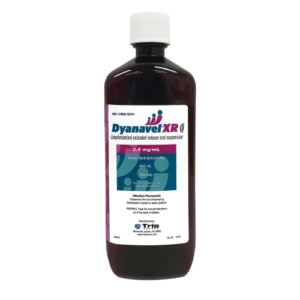
CBD & Immunomodulators
Immunomodulators are drugs that interact with the immune system. Some increase immune activity, others suppress it. They’re used to block inflammation, treat allergic reactions, treat autoimmune disorders, or stimulate immune activity during infections or cancer therapy.
CBD has a strong correlation with the immune system but doesn’t interact with most immune system medications. A few exceptions include antihistamines and immunosuppressants.
Antihistamines & CBD
- Type of Interaction: ↑↑↑ Increased Effect(Agonistic)
- Severity: Moderate
Antihistamine medications are mainly used to treat allergic reactions. Histamine is a compound released by a special type of immune cell called mast cells.
These cells sit dormant until something triggers it (an allergen).
When they become active, mast cells burst open, releasing large amounts of histamine and other pro-inflammatory compounds. These compounds are what cause the symptoms we experience as an allergic reaction (runny nose, teary eyes, puffiness, itchiness, and sneezing or coughing).
One of the main side-effects of antihistamines is sedation. Histamine also plays a role in regulating mental alertness and stimulation, so blocking this compound can cause sedation and fatigue.
The sedative and relaxing qualities of CBD may exaggerate the side effects of antihistamine drugs even further.
If you’re already experiencing the side effects of antihistamines, it’s wise to avoid using CBD. While this substance isn’t likely to result in any severe interactions, it’s likely to make the side effects you’re already experiencing even worse.
Antihistamines That May Interact With CBD
- Carbinoxamine (Palgic)
- Desloratadine (Clarinex)
- Hydroxyzine (Atarax & Vistaril)
- Levocetirizine (Xyzal)
- Brompheniramine (Dimetane)
- Cetirizine (Zyrtec)
- Chlorpheniramine (Chlor-Trimeton)
- Clemastine (Tavist)
- Diphenhydramine (Benadryl)
- Fexofenadine (Allegra)
- Loratadine (Alavert & Claritin)
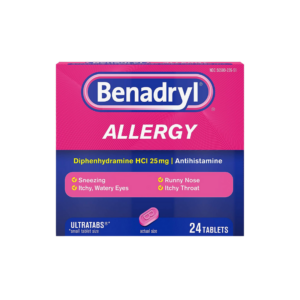
Immunosuppressants & CBD
- Type of Interaction: ↓↓↓ Decreased Effect (Antagonistic)
- Severity: Severe
CBD should never be used alongside immunosuppressants unless under direct recommendation by your prescribing doctor.
CBD has immune-stimulating properties, especially in people with suppressed immune function already. Taking CBD with immunosuppressants may counteract or negate the effects of immunosuppressant drugs. This can make the drugs ineffective, leading to a worsening of the underlying condition.
Since immunosuppressant medications are used for severe health conditions or to prevent rejection after an organ transplant — it can be very dangerous if the medications don’t work effectively.
Immunosuppressants That May Interact With CBD
- Azathioprine (Imuran)
- Mycophenolate Mofetil (Cellcept)
- Cyclosporine (Neoral, Sandimmune, Gengraf)
- Methotrexate (Rheumatrex)
- Leflunomide (Arava)
- Prednisone (Deltasone)
- Cyclophosphamide (Cytoxan)
- Chlorambucil (Leukeran)
- Nitrogen Mustard (Mustargen)
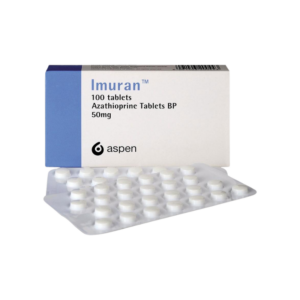
CBD & Diabetes Medications
The CDC reports that roughly 1 in 10 Americans have been diagnosed with diabetes (2020). This makes diabetic medications one of the most common concerns for people looking to use CBD.
There are dozens of medications doctors can prescribe for managing diabetes, depending on the severity of the condition. Most of these medications won’t interact strongly with CBD directly — but it’s wise to start with a low dose of CBD when first starting to reduce the risk of negative interactions.
CBD has some blood-sugar regulating effects, which could cause blood pressure to drop too low when taking medications like Metformin or DPP-4 inhibitors. If blood pressure drops too low, it can lead to hypoglycemia and fainting — which can be dangerous.
Always speak with your doctor before using CBD if you’re taking anti-diabetic medications.
Alpha-Glucosidase Inhibitors
- Type of Interaction: No significant interaction expected (mild agonistic effect possible)
- Severity: Mild
Alpha-glucosidase is an enzyme in the digestive system responsible for breaking down sugars so they can be absorbed. These medications are used to block the effects of this enzyme and reduce the amount of sugar that can enter the bloodstream.
CBD is unlikely to have a strong reaction to these medications. There’s a slight risk of the interaction, causing blood sugar levels to dip too low due to similar effects on blood sugar. It’s also possible that the absorption of CBD is affected when taking alpha-glucosidase inhibitors at the same time, leading to reduced effectiveness of the CBD.
Alpha-glucosidase Inhibitors That May Interact With CBD
- Acarbose (Precose)
- Miglitol (Glyset)
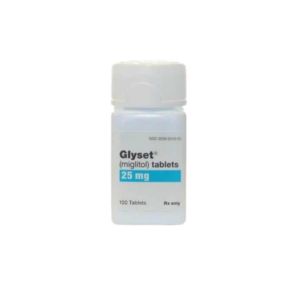
Biguanides & CBD
- Type of Interaction: ↑↑↑ Increased Effect (Agonistic)
- Severity: Mild
There’s only one biguanide on the market today — called Metformin — which is not only the most common treatment for type II diabetes, it’s one of the most commonly prescribed medications in the world.
Metformin works by blocking glucose production in the liver to reduce blood sugar levels and increase the sensitivity (effectiveness) of insulin in the body.
There are two potential interactions between CBD and Metformin;
They both compete for the same liver enzymes (primarily CYP3A4), which could lead to increased concentrations of both substances taken in tandem.
The second interaction involves the effects of both substances on blood sugar levels. Both Metformin and CBD lead to an overall reduction in blood glucose — though they achieve this through completely different mechanisms.
It’s possible for CBD and Metformin to lead to hypoglycemia when used together.
With that said, many people take CBD with their Metformin without any side effects. Some reports even suggest CBD and Metformin have a positive interaction — leading to even better results when combined.
The risk of this interaction is low but not nonexistent. You should always ask your doctor about CBD before you take it if you’re using Metformin to treat your diabetes.
Biguanides That May Interact With CBD
- Metformin (Kazano, Invokamet, Xigduo XR, Synjardy, Glucovance, Jentadueto, Actoplus, PrandiMet, Avandamet, Kombiglyze XR, & Janumet)
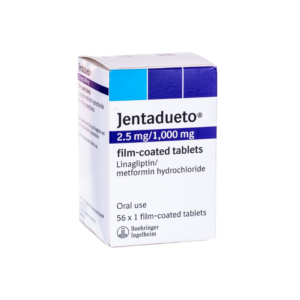
DPP-4 Inhibitors
- Type of Interaction: ↑↑↑ Increased Effect (Agonistic)
- Severity: Mild
DPP-4 stands for dipeptidyl Peptidase-4 — which is an enzyme tasked with breaking down a class of digestive enzymes called incretins. Incretins stimulate the production of insulin after a meal and block the production of glucagon (which works in opposition to insulin).
DPP-4 inhibitors block this enzyme, leading to an increase in the concentration of incretins. This is thought to promote higher insulin and reduce glucagon levels.
Many of these medications, particularly Saxagliptin and Sitagliptin, requires a lot of attention from liver enzymes such as the CYP3A4 and CYP3A5 enzymes [7]. They also have a very long half-life.
This increases the risk of side effects when used in combination with any other substances that require metabolism from these enzymes — including CBD. Other DPP-4 inhibitors than Sacagliptin and Sitagliptin don’t have a strong reliance on these enzymes [8] and are much less likely to interfere with CBD.
DPP-4 inhibitors are used on a daily basis, so it’s possible that over time when used in conjunction with CBD, concentrations of the medication could build up to toxic levels in the bloodstream. This would lead to a higher rate of side-effects caused by the medication itself — which includes nausea, flu-like symptoms, or painful skin reactions.
Secondly, the main impact of DPP-4 inhibitors is a reduction in blood glucose levels. This could compound the hypoglycemic effects of CBD and lead to symptoms associated with low blood sugar.
DPP-4 Inhibitors That May Interact With CBD
- Alogliptin (Nesina, Kazano, Oseni)
- Linagliptin (Tradjenta, Glyxambi, & Jentadueto)
- Saxagliptin (Onglyza, Kombiglyze XR)
- Sitagliptin (Januvia, Janumet, & Juvisync)
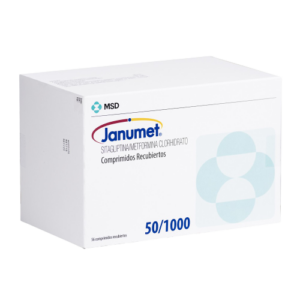
GLP-1 Receptor Agonists & CBD
- Type of Interaction: ↑↑↑ Increased Effect (Agonistic)
- Severity: Mild
GLP-1 refers to glucagon-like peptide-1 — which is an incretin-based medication. These medications are similar to DPP-4 inhibitors, but instead of blocking the enzyme that destroys increments, it stimulates the incretin receptors with synthetic versions of these important hormones.
The effects are increased feelings of satiety and increased insulin secretion. They’re used for weight loss and blood sugar control.
GLP-1 agonists don’t exert a strong impact on CYP450 enzymes and are unlikely to have a strong interaction with CBD.
The main concern for potential interactions between CBD and GLP-1 receptor agonists is the anti-appetite effects. Both CBD and GLP-1 agonists reduce appetite.
GLP-1 Receptor Agonists That May Interact With CBD
- Albiglutide (Tanzen)
- Dulaglutide (Trulicity)
- Exenatide (Byetta, Bydureon)
- Liraglutide (Victoza)
- Semaglutide (Ozempic)
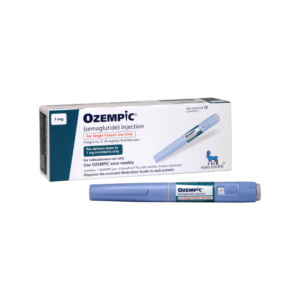
Meglitinides & CBD
- Type of Interaction: ↑↑↑ Increased Effect (Agonistic)
- Severity: Mild
Meglitinides work by stimulating the release of insulin in diabetic patients. They stimulate the beta cells of the pancreas directly where insulin is produced.
The chances of interactions between CBD and Meglitinides are very low — but not nonexistent. The combined impact of these substances on reducing blood sugar through the effects of insulin could lead to hypoglycemia (low blood sugar).
Meglitinides are primarily metabolized by CYP2C8 and CYP3A4. CBD has only been shown to compete for the former but is unlikely to lead to significant issues with competitive liver metabolism with this class of drugs.
Meglitinides That May Interact With CBD
- Nateglinide (Starlix)
- Repaglinide (Prandin, Prandimet)
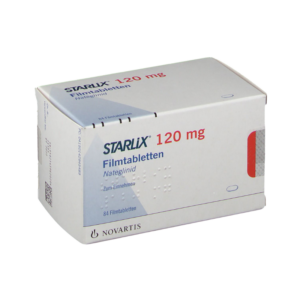
SGLT-2 Inhibitors & CBD
- Type of Interaction: ↑↑↑ Increased Effect (Agonistic)
- Severity: Mild
SGLT-2 stands for sodium-glucose transporter — which is involved with the reabsorption of sugar through the kidneys. Blood is first filtered through the kidneys, which removes various metabolites and sugar. A lot of the removed sugar is then reabsorbed later through the SGLT-2 transporters.
These medications block that transporter to prevent sugar from re-entering the system — leading to an overall reduction in blood sugar levels.
CBD is unlikely to interact negatively with these medications but theoretically could cause blood sugar to drop too low — leading to hypoglycemia (low blood sugar).
SGLT-2 Inhibitors That May Interact With CBD
- Dapagliflozin (Farxiga & Xigduo XR)
- Canagliflozin (Invokana, Invokamet)
- Empagliflozin (Jardiance, Glyxambi, Synjardy)
- Ertugliflozin (Steglatro)
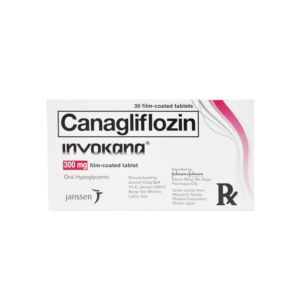
Sulfonylureas & CBD
- Type of Interaction: ↑↑↑ Increased Effect (Agonistic)
- Severity: Mild
Sulfonylureas medications work similarly to meglitinides by stimulating the secretion of insulin from the pancreas.
CBD is unlikely to interact with these medications directly, but it’s possible for the combination to lead to a stronger impact on blood sugar control that could cause levels to dip too low.
Hypoglycemia can cause dizziness, poor coordination, mood changes, and fainting.
Sulfonylureas Drugs That May Interact With CBD
- Glimepiride (Amaryl, Duetact, Avandaryl)
- Glipizide (Glucotrol, Metaglip)
- Glyburide (DiaBeta, Glynase, Micronase, Glucovance)
- Chlorpropamide (Diabinese)
- Tolazamide (Tolinase)
- Tolbutamide (Orinase, Tol-Tab)
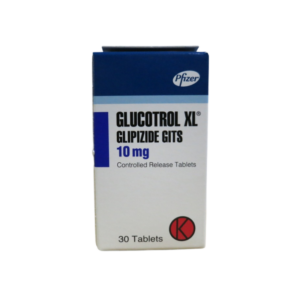
Thiazolidinediones & CBD
- Type of Interaction: Unknown interaction (avoid)
- Severity: Mild
Thiazolidinediones are a class of medications that bind and activate a receptor called peroxisome proliferator-activated receptor-gamma, which is located in the fat cells. This medication increases the maturation of fat cells and increases the conversion of sugar into stored fat — thus reducing systemic blood sugar levels. Weight gain is the main side-effect of these medications.
There are no known interactions with CBD and thiazolidinedione medications, but in theory, the combination could lead to an excessive drop in blood sugar levels.
Additionally, CBD has been shown to interact with the deposition of fat, which could interfere with the ability of these medications to exert their effects. This could negate the effectiveness of these medications.
Until more research is done, it’s not recommended that you combine CBD and thiazolidinediones unless under the advice of your doctor.
Thiazolidinedione Drugs That May Interact With CBD
- Rosiglitazone (Avandia, Avandaryl, Amaryl M)
- Pioglitazone (Actos, Oseni, Duetact)
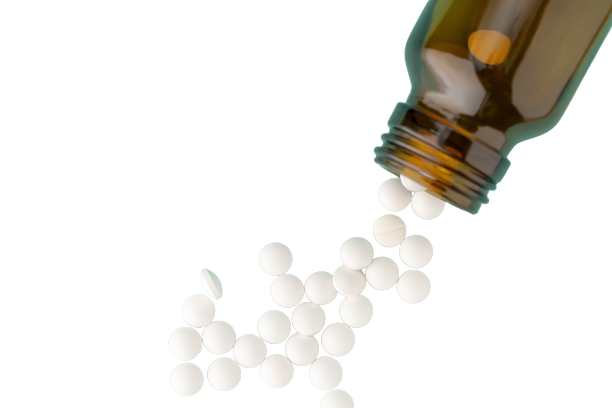
Insulin & CBD
- Type of Interaction: ↑↑↑ Increased Effect (Agonistic)
- Severity: Mild
Insulin is the primary treatment for patients with type I diabetes (juvenile-onset diabetes). People with this type of diabetes can’t make their own insulin.
Studies have shown CBD can reduce insulin resistance and blood sugar levels — but there’s no indication CBD blocks the effects of insulin or forces blood sugar levels to drop unnaturally.
With that said, most experts are cautious about mixing CBD and insulin in fear of causing issues with hypoglycemia.
- Insulin Aspart (NovoLog, FlexPen, Fiasp)
- Insulin Glulisine (Apidra)
- Insulin Lispro (Humalog)
- Insulin Isophane (Humulin N, Novolin N)
- Insulin Degludec (Tresiba)
- Insulin Detemir (Levemir)
- Insulin Glargine (Lantus)
- Insulin Glargine (Lantus, Toujeo)
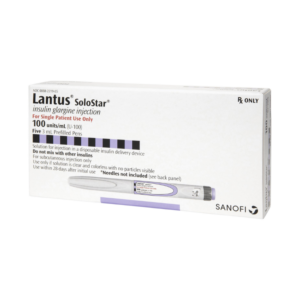
CBD & Erectile Dysfunction (ED) Medications
Most erectile dysfunction medications work the same way. They promote the dilation of small blood vessels that supply blood flow to the penis. By widening the arteries, it’s easier for a man to achieve an erection.
CBD is unlikely to interact with these medications but could interfere with metabolism by competing for the CYP3A4. This would lead to stronger effects from CBD as well as the ED medications. This could increase the risk of side effects from these medications, which include headaches, indigestion, diarrhea, or priapism.
If taking any of these medications, make sure you’re using a more conservative dose of CBD than you might otherwise.
Erectile Dysfunction Medications That May Interact With CBD
- Sildenafil (Viagra)
- Tadalafil (Cialis)
- Vardenafil (Levitra, Staxyn, and Vivanza)
- Avanafil (Stendra)
- Mirodenafil (Mvix)
- Udenafil (Zydena)
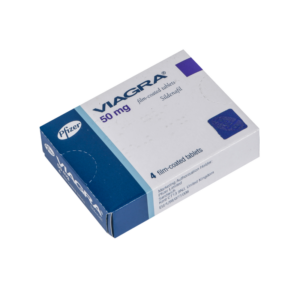
CBD & 5-ARIs
5-ARI stands for 5-alpha-reductase inhibitors. They’re a class of drugs that block testosterone’s conversion into dihydrotestosterone (DHT) by blocking the enzyme that performs the conversion.
When testosterone is converted to DHT with the help of an enzyme called 5-alpha-reductase, it’s thought to alter the hair follicle’s lifecycle — causing hair to become shorter, thinner, and eventually stop growing entirely. In the prostate, it’s linked with a condition called benign prostatic hyperplasia (BPH) — which is an increase in tissue leading to a larger size of the organ.
5-alpha-reductase inhibitors are common medications for treating both male pattern balding and BPH.
CBD may interfere with the metabolism of these drugs at the CYP3A4 enzymes — though the likelihood of experiencing negative side-effects with this combination is rare — they aren’t nonexistent. Interactions could include increased risk of side-effects of the drugs — such as increased breast size, skin rashes, and decreased libido.
5-Alpha-Reductase Inhibitors That May Interact With CBD
- Alfatradiol (Ell-Cranell Alpha & Pantostin)
- Dutasteride (Avodart)
- Epristeride (Aipuliete & Chuanliu)
- Finasteride (Proscar & Propecia)
- Saw Palmetto Extract (Permixon)
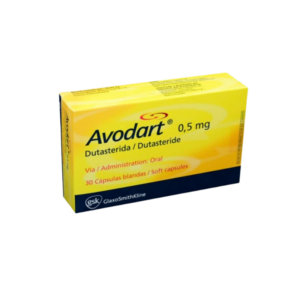
CBD & Statin Drugs
- Type of Interaction: Metabolic Competitor (CYP3A4)
- Severity: Moderate
Statin drugs are used to reduce the production of cholesterol by the liver. They work by blocking an enzyme called HMG-CoA reductase.
While CBD isn’t likely to interact with statin drugs directly and has a completely separate set of effects, there’s a strong potential for CBD to interfere with the metabolism of statins — most of which rely heavily on the CYP3A4 enzymes in the liver.
Taking CBD and statins together could lead to an increase in serum concentrations of the drug over time.
Always speak with your doctor before using CBD with your statin medications.
Statin Drugs That May Interact With CBD
- Atorvastatin (Lipitor)
- Lovastatin (Altoprev)
- Pitavastatin (Livalo, Zypitamag)
- Pravastatin (Pravachol)
- Rosuvastatin (Crestor & Ezalor)
- Simvastatin (Zocor)
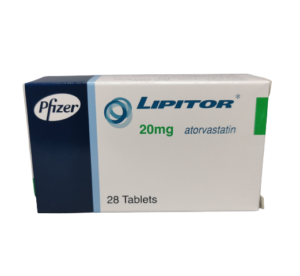
Proton Pump Inhibitors (PPIs)
- Type of Interaction: Metabolic Competitor (CYP2C19)
- Severity: Mild
Proton pump inhibitors (PPIs) are the most commonly prescribed class of medications for managing heartburn, gastroesophageal reflux disease (GERD), and other stomach-acid-related conditions. They work by blocking the parietal cells in the stomach that secrete stomach acid.
PPI medications are largely metabolized by the CYP2C19 liver enzymes [9], which is also one of the substrates used to metabolize CBD — though to a lesser extent. This could be a source of negative interaction with CBD.
The most likely negative interaction is a stronger impact of CBD due to slower metabolism.
Opt for a smaller dose of CBD if you’re using proton pump inhibitors.
PPIs That May Interact With CBD
- Pantoprazole (Protonix)
- Ranitidine (Zantac)
- Omeprazole (Prilosec, Prilosec OTC, Zegerid)
- Lansoprazole (Prevacid)
- Rabeprazole (Aciphex)
- Esomeprazole (Nexium)
- Dexlansoprazole (Dexilant)
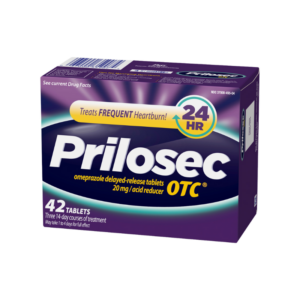
CBD & Asthma Medications
- Type of Interaction: ↓↓↓ Decreased Effect (Antagonistic)
- Severity: Mild
Asthma is a chronic immune disorder affecting the lungs. When exposed to an allergen, the immune system causes the airways to close and secrete a thick mucous that can make it difficult to breathe. Asthma medications are centered around blocking the immune response and forcing the airways to open in order to allow more air to flow into the lungs.
CBD interacts strongly with one asthma medication in particular — known as theophylline. CBD may speed up theophylline’s excretion from the body, leading to reduced effectiveness.
Other interactions may occur with steroid-type medications, such as albuterol and ipratropium bromide. CBD relaxes the sympathetic nervous system, which may counteract the effects of these medications — which rely on the activation of the sympathetic nervous system to widen the airway and treat symptoms.
Inhalable forms of CBD should be avoided by anybody with a history of asthma — including vaporizers.
Asthma Medications That May Interact With CBD
- Albuterol (Accuneb, Salbutamol, Proair, Proventil & Ventolin)
- Fluticasone (Flonase, Flovent & Cutivate)
- Montelukast (Singulair)
- Ipratropium bromide (Atrovent)
- Theophylline (Theo 24, Theochron, Elixophyllin, aminophylline, Uniphyl)
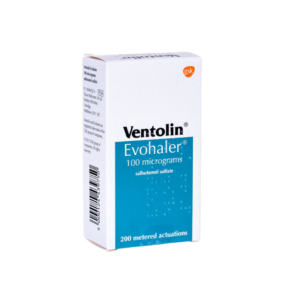
CBD & Antimicrobials
- Type of Interaction: Mixed (Increased or Decreased Effect)
- Severity: Mild
There are four main types of antimicrobials — antibacterials, antifungals, antivirals, and antiparasitics (includes anthelmintics, antiamoebics, and antiprotozoals).
There are so many different compounds that act as antimicrobials it’s difficult to group them all together as one. Each compound works differently, is metabolized differently, and produces different side effects.
Some studies suggest CBD may make certain antibiotics more effective and may offer a promising solution to the issue of antibiotic resistance [6].
But this isn’t the case with all antimicrobials. Some antimicrobials compete for the same enzymes in the liver. All antimicrobials are different, so make sure you speak with your doctor about whether or not CBD is safe to take alongside your prescription or not.
Antimicrobials That Could Interact With CBD:
- Ivermectin (Stromectol, Soolantra)
- Clarithromycin (Biaxin)
- Metronidazole (Flagyl)
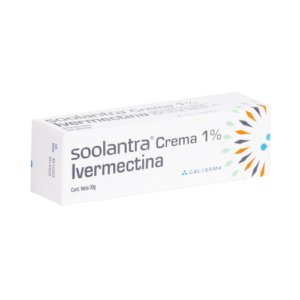
CBD & Antiemetics
- Type of Interaction: ↑↑↑ Increased Effect (Agonistic)
- Severity: Mild-Moderate
CBD itself is a powerful antiemetic, which could make it synergistic with other antiemetic medications — making the effects of both substances more effective.
However, there’s also a potential for negative interaction through other mechanisms. CBD could slow the metabolism of anti-emetic drugs, which could lead to toxic buildup if the medication is used on a daily basis.
Some anti-emetics work through the serotonergic system — so if they aren’t cleared from the body as expected, it could lead to a dangerous condition called serotonin syndrome.
Anti-Emetics That Could Interact With CBD:
- Aprepitant (Emend)
- Dexamethasone (DexPak)
- Dolasetron (Anzemet)
- Granisetron (Kytril)
- Ondansetron (Zofran)
- Palonosetron (Aloxi)
- Prochlorperazine (Compazine)
- Rolapitant (Varubi)
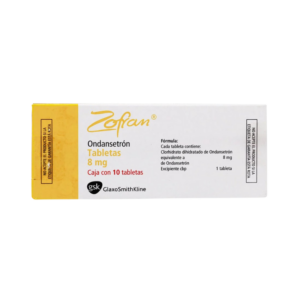
CBD & Alcohol
- Type of Interaction: ↑↑↑ Increased Effect (Agonistic)
- Severity: Mild
CBD has only a minor interaction with alcohol. Both substances have sedative and hypotensive actions. Taking them together can make these side effects more pronounced.
It’s rare for people to experience anything more than mild interactions with these two substances, but in some cases, the impact can be severe — leading to dizziness, loss of coordination, fainting, or lethargy and malaise.

Summary: Will CBD Interact With My Medication?
CBD is a very safe health supplement overall. It rarely produces anything more than mild side effects and has a low potential to interact with most drugs or other health supplements.
With that said, negative drug interactions are still possible.
There are three ways CBD can interact with other medications — it can increase the effects or side-effects of other drugs by having the same effect. It can negate the effects of a drug or substance by exerting opposite effects. Or it can interfere with the metabolism of certain drugs in the liver — causing concentrations of the drug to increase.
The most concerning drugs to be aware of when using CBD are benzodiazepines, barbiturates, immunosuppressants, or drugs used to reduce blood pressure.
If you’re taking any prescription medications, it’s a good idea to speak with your doctor about using CBD first. If you use CBD, start with a very low dose at first and only increase once you know how your body responds. If taking medications long-term, it’s also a good idea to take periodic breaks away from CBD every few days.
References
- Guindon, J., De Léan, A., & Beaulieu, P. (2006). Local interactions between anandamide, an endocannabinoid, and ibuprofen, a nonsteroidal anti-inflammatory drug, in acute and inflammatory pain. Pain, 121(1-2), 85-93.
- Bujalska, M. (2008). Effect of cannabinoid receptor agonists on streptozotocin-induced hyperalgesia in diabetic neuropathy. Pharmacology, 82(3), 193.
- Grayson, L., Vines, B., Nichol, K., & Szaflarski, J. P. (2018). An interaction between warfarin and cannabidiol, a case report. Epilepsy & behavior case reports, 9, 10.
- Yamaori, S., Ebisawa, J., Okushima, Y., Yamamoto, I., & Watanabe, K. (2011). Potent inhibition of human cytochrome P450 3A isoforms by cannabidiol: role of phenolic hydroxyl groups in the resorcinol moiety. Life sciences, 88(15-16), 730-736.
- Calipari, E. S., & Ferris, M. J. (2013). Amphetamine mechanisms and actions at the dopamine terminal revisited. Journal of Neuroscience, 33(21), 8923-8925.
- Wassmann, C. S., Højrup, P., & Klitgaard, J. K. (2020). Cannabidiol is an effective helper compound in combination with bacitracin to kill Gram-positive bacteria. Scientific reports, 10(1), 1-12.
- Tella, S. H., & Rendell, M. S. (2015). DPP-4 inhibitors: focus on safety. Expert opinion on drug safety, 14(1), 127-140.
- Brown, D. X., & Evans, M. (2012). Choosing between GLP-1 receptor agonists and DPP-4 inhibitors: a pharmacological perspective. Journal of nutrition and metabolism, 2012.
- Brown, J. D., & Winterstein, A. G. (2019). Potential adverse drug events and drug–drug interactions with medical and consumer cannabidiol (CBD) use. Journal of clinical medicine, 8(7), 989.
- Yamaori, S., Ebisawa, J., Okushima, Y., Yamamoto, I., & Watanabe, K. (2011). Potent inhibition of human cytochrome P450 3A isoforms by cannabidiol: role of phenolic hydroxyl groups in the resorcinol moiety. Life sciences, 88(15-16), 730-736.
- Pang, X., Zhang, B., Mu, G., Xia, J., Xiang, Q., Zhao, X., … & Cui, Y. (2018). Screening of cytochrome P450 3A4 inhibitors via in silico and in vitro approaches. RSC advances, 8(61), 34783-34792.
- Yamaori, S., Ebisawa, J., Okushima, Y., Yamamoto, I., & Watanabe, K. (2011). Potent inhibition of human cytochrome P450 3A isoforms by cannabidiol: role of phenolic hydroxyl groups in the resorcinol moiety. Life sciences, 88(15-16), 730-736.
- Jiang, R., Yamaori, S., Okamoto, Y., Yamamoto, I., & Watanabe, K. (2013). Cannabidiol is a potent inhibitor of the catalytic activity of cytochrome P450 2C19. Drug metabolism and pharmacokinetics, DMPK-12.
Signup to our newsletter
Be the first to know about our newest arrivals and special offers!

